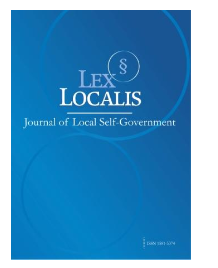Article under processing
DOI:
https://doi.org/10.52152/ws4vwc15Abstract
..
Published
2025-10-03
Issue
Section
Article
License
Copyright (c) 2025 Lex localis - Journal of Local Self-Government

This work is licensed under a Creative Commons Attribution-NonCommercial-NoDerivatives 4.0 International License.
How to Cite
Article under processing. (2025). Lex Localis - Journal of Local Self-Government, 23(11), 1122-1136. https://doi.org/10.52152/ws4vwc15








